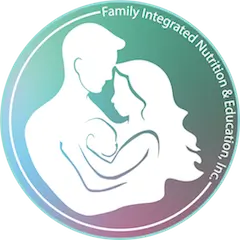Understanding Female Fertility: Common Health Conditions and Their Impact
Author: Dr. Jimi Francis, PhD, IBCLC, RDN, LD, RLC
Female fertility is a complex and deeply personal aspect of reproductive health. While many factors can influence fertility, certain health conditions can significantly impact a woman’s ability to conceive. Understanding these conditions is essential for those trying to start a family or seeking to optimize their reproductive health journey. In this blog post, we’ll discuss the common health conditions of Polycystic Ovary Syndrome, Endometriosis, Thyroid Disorders, and Diminished Ovarian Reserve, which affect female fertility.
Polycystic Ovary Syndrome (PCOS) is a hormonal disorder that affects millions of women worldwide. It is characterized by irregular menstrual cycles, excess androgen levels, and cysts on the ovaries. PCOS can disrupt ovulation, making it challenging for women to conceive. Additionally, insulin resistance, often associated with PCOS, can further complicate fertility issues. However, with proper management strategies, including lifestyle changes and adequate nutrients, many women with PCOS can successfully conceive and carry a pregnancy to term.
Endometriosis is when the tissue that usually lines the inside of the uterus grows outside, commonly on the ovaries, fallopian tubes, and other pelvic organs. This can lead to inflammation, scarring, and the formation of adhesions, which can interfere with the normal function of the reproductive organs. Endometriosis can cause infertility by obstructing the fallopian tubes, disrupting ovulation, and affecting the quality of the eggs. Treatment options for endometriosis-related infertility may include surgery to remove endometrial tissue, hormone therapy, and assisted reproductive technologies such as in vitro fertilization (IVF).
Thyroid disorders, including hypothyroidism (underactive thyroid) and hyperthyroidism (overactive thyroid), can have a significant impact on female fertility. Thyroid hormones play a crucial role in regulating the menstrual cycle and ovulation. Imbalances in thyroid function can disrupt these processes, leading to irregular periods, anovulation (lack of ovulation), and difficulty conceiving. Fortunately, thyroid disorders can often be effectively managed with medication and lifestyle modifications, allowing many women to restore their fertility.
Diminished Ovarian Reserve (DOR) refers to a decrease in the quantity or quality of a woman’s eggs, typically associated with aging. It can also occur due to other factors, such as genetics or certain medical treatments. Women with DOR may experience irregular menstrual cycles, difficulty conceiving, or recurrent miscarriages. While DOR is a natural part of the aging process, various fertility treatments, such as egg freezing or donor egg IVF, may offer options for women seeking to preserve their fertility or overcome infertility related to DOR.
In conclusion, female fertility is influenced by a myriad of factors, including underlying health conditions. By understanding the impact of common health conditions on fertility and seeking appropriate medical guidance and treatment, women can empower themselves to navigate their reproductive health journey effectively. Whether it’s managing conditions like PCOS or endometriosis, addressing thyroid disorders, or exploring fertility preservation options, there are resources and support available to help women achieve their family-building goals. If you’re experiencing fertility challenges, don’t hesitate to contact Dr. Jimi at Family Integrated Nutrition and Education, Incorporated, for personalized care and guidance.
©copywrite Dr. Jimi Francis, 2024






